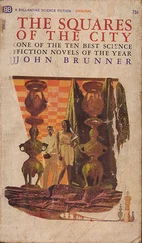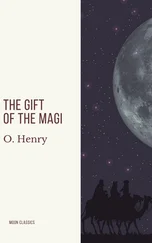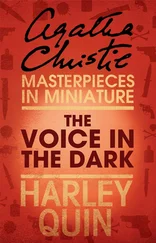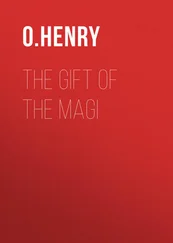O'Henry - The Voice of the City
Здесь есть возможность читать онлайн «O'Henry - The Voice of the City» весь текст электронной книги совершенно бесплатно (целиком полную версию без сокращений). В некоторых случаях можно слушать аудио, скачать через торрент в формате fb2 и присутствует краткое содержание. Жанр: Классическая проза, Юмористическая проза, на английском языке. Описание произведения, (предисловие) а так же отзывы посетителей доступны на портале библиотеки ЛибКат.
- Название:The Voice of the City
- Автор:
- Жанр:
- Год:неизвестен
- ISBN:нет данных
- Рейтинг книги:5 / 5. Голосов: 1
-
Избранное:Добавить в избранное
- Отзывы:
-
Ваша оценка:
- 100
- 1
- 2
- 3
- 4
- 5
The Voice of the City: краткое содержание, описание и аннотация
Предлагаем к чтению аннотацию, описание, краткое содержание или предисловие (зависит от того, что написал сам автор книги «The Voice of the City»). Если вы не нашли необходимую информацию о книге — напишите в комментариях, мы постараемся отыскать её.
The Voice of the City — читать онлайн бесплатно полную книгу (весь текст) целиком
Ниже представлен текст книги, разбитый по страницам. Система сохранения места последней прочитанной страницы, позволяет с удобством читать онлайн бесплатно книгу «The Voice of the City», без необходимости каждый раз заново искать на чём Вы остановились. Поставьте закладку, и сможете в любой момент перейти на страницу, на которой закончили чтение.
Интервал:
Закладка:
The next meeting of the hero and heroine was in front of a board fence near Broadway. The day had been a disappointing one. There had been no fights on the street, children had kept from under the wheels of the street cars, cripples and fat men in negligee shirts were scarce; nobody seemed to be inclined to slip on banana peels or fall down with heart disease. Even the sport from Kokomo, Ind., who claims to be a cousin of ex-Mayor Low and scatters nickels from a cab window, had not put in his appearance. There was nothing to stare at, and William Pry had premonitions of ennui.
But he saw a large crowd scrambling and pushing excitedly in front of a billboard. Sprinting for it, he knocked down an old woman and a child carrying a bottle of milk, and fought his way like a demon into the mass of spectators. Already in the inner line stood Violet Seymour with one sleeve and two gold fillings gone, a corset steel puncture and a sprained wrist, but happy. She was looking at what there was to see. A man was painting upon the fence:
"Eat Bricklets - They Fill Your Face."
Violet blushed when she saw William Pry. William jabbed a lady in a black silk raglan in the ribs, kicked a boy in the shin, bit an old gentleman on the left ear and managed to crowd nearer to Violet. They stood for an hour looking at the man paint the letters. Then William's love could be repressed no longer. He touched her on the arm.
"Come with me," he said. "I know where there is a bootblack without an Adam's apple."
She looked up at him shyly, yet with unmistakable love transfiguring her countenance.
"And you have saved it for me?" she asked, trembling with the first dim ecstasy of a woman beloved.
Together they hurried to the bootblack's stand. An hour they spent there gazing at the malformed youth.
A window-cleaner fell from the fifth story to the sidewalk beside them. As the ambulance came clanging up William pressed her hand joyously. "Four ribs at least and a compound fracture," he whispered, swiftly. "You are not sorry that you met me, are you, dearest?
"Me?" said Violet, returning the pressure. "Sure not. I could stand all day rubbering with you."
The climax of the romance occurred a few days later. Perhaps the reader will remember the intense excitement into which the city was thrown when Eliza Jane, a colored woman, was served with a subpoena. The Rubber Tribe encamped on the spot. With his own hands William Pry placed a board upon two beer kegs in the street opposite Eliza Jane's residence. He and Violet sat there for three days and nights. Then it occurred to a detective to open the door and serve the subpoena. He sent for a kinetoscope and did so.
Two souls with such congenial tastes could not long remain apart. As a policeman drove them away with his night stick that evening they plighted their troth. The seeds of love bad been well sown, and had grown up, hardy and vigorous, into a - let us call it a rubber plant.
The wedding of William Pry and Violet Seymour was set for June 10. The Big Church in the Middle of the Block was banked high with flowers. The populous tribe of Rubberers the world over is rampant over weddings. They are the pessimists of the pews. They are the guyers of the groom and the banterers of the bride. They come to laugh at your marriage, and should you escape from Hymen's tower on the back of death's pale steed they will come to the funeral and sit in the same pew and cry over your luck. Rubber will stretch.
The church was lighted. A grosgrain carpet lay over the asphalt to the edge of the sidewalk. Bridesmaids were patting one another's sashes awry and speaking of the Bride's freckles. Coachmen tied white ribbons on their whips and bewailed the space of time between drinks. The minister was musing over his possible fee, essaying conjecture whether it would suffice to purchase a new broadcloth suit for himself and a photograph of Laura Jane Libbey for his wife. Yea, Cupid was in the air.
And outside the church, oh, my brothers, surged and heaved the rank and file of the tribe of Rubberers. in two bodies they were, with the grosgrain carpet and cops with clubs between. They crowded like cattle, they fought, they pressed and surged and swayed and trampled one another to see a bit of a girl in a white veil acquire license to go through a man's pockets while be sleeps. But the hour for the wedding came and went, and the bride and bridegroom came not. And impatience gave way to alarm and alarm brought about search, and they were not found. And then two big policemen took a band and dragged out of the furious mob of onlookers a crushed and trampled thing, with a wedding ring in its vest pocket and a shredded and hysterical woman beating her way to the carpet's edge, ragged, bruised and obstreperous.
William Pry and Violet Seymour, creatures of habit, had joined in the seething game of the spectators, unable to resist the overwhelming desire to gaze upon themselves entering, as bride and bridegroom, the rose-decked church.
Rubber will out.
ONE THOUSAND DOLLARS
"One thousand dollars," repeated Lawyer Tolman, solemnly and severely, "and here is the money."
Young Gillian gave a decidedly amused laugh as he fingered the thin package of new fifty-dollar notes.
"It's such a confoundedly awkward amount," he explained, genially, to the lawyer. "If it had been ten thousand a fellow might wind up with a lot of fireworks and do himself credit. Even fifty dollars would have been less trouble."
"You heard the reading of your uncle's will," continued Lawyer Tolman, professionally dry in his tones. "I do not know if you paid much attention to its details. I must remind you of one. You are required to render to us an account of the manner of expenditure of this $1,000 as soon as you have disposed of it. The will stipulates that. I trust that you will so far comply with the late Mr. Gillian's wishes."
"You may depend upon it," said the young man.% politely, "in spite of the extra expense it will entail. I may have to engage a secretary. I was never good at accounts."
Gillian went to his club. There be hunted out one whom he called Old Bryson.
Old Bryson was calm and forty and sequestered. He was in a corner reading a book, and when he saw Gillian approaching he sighed, laid down his book and took off his glasses.
"Old Bryson, wake up," said Gillian. "I've a funny story to tell you."
" I wish you would tell it to some one in the billiard room," said Old Bryson. "You know how I hate your stories."
" This is a better one than usual," said Gillian, rolling a cigarette; " and I'm glad to tell it to you. It's too sad and funny to go with the rattling of billiard bars. I've just come from my late uncle's firm of legal corsairs. He leaves me an even thousand dollars. Now, what can a man possibly do with a thousand dollars? "
"I thought," said Old Bryson, showing as much interest as a bee shows in a vinegar cruet, "that the late Septimus Gillian was worth something like half a million."
" He was," assented Gillian, joyously, " and that's where the joke comes in. He's left his whole cargo of doubloons to a microbe. That is, part of it goes to the man who invents a new bacillus and the rest to establish a hospital for doing away with it again.
There are one or two trifling bequests on the side. - the butler and the housekeeper get a seal ring and $10 each. His nephew gets $1,000."
"You've always had plenty of money to spend," observed Old Bryson.
"Tons," said Gillian. "Uncle was the fairygodmother as far as an allowance was concerned."
"Any other heirs? " asked Old Bryson.
"None." Gillian frowned at his cigarette and kicked the upholstered leather of a divan uneasily.
There is a Miss Hayden, a ward of my uncle, who lived in his house. She's a quiet thing - musical - the daughter of somebody who was unlucky enough to be his friend. I forgot to say that she was in on the seal ring and $10 joke, too. I wish I had been. Then I could have had two bottles of brut, tipped the waiter with the ring and had the whole business off my bands. Don't be superior and insulting, Old Bryson - tell me what a fellow can do with a thousand dollars." Old Bryson rubbed his glasses and smiled. And when Old Bryson smiled, Gillian knew that be intended to be more offensive than ever.
Читать дальшеИнтервал:
Закладка:
Похожие книги на «The Voice of the City»
Представляем Вашему вниманию похожие книги на «The Voice of the City» списком для выбора. Мы отобрали схожую по названию и смыслу литературу в надежде предоставить читателям больше вариантов отыскать новые, интересные, ещё непрочитанные произведения.
Обсуждение, отзывы о книге «The Voice of the City» и просто собственные мнения читателей. Оставьте ваши комментарии, напишите, что Вы думаете о произведении, его смысле или главных героях. Укажите что конкретно понравилось, а что нет, и почему Вы так считаете.











